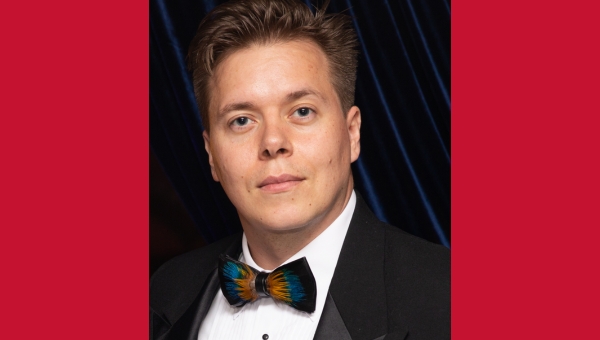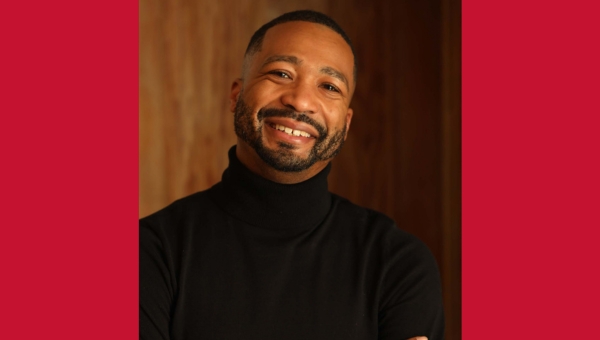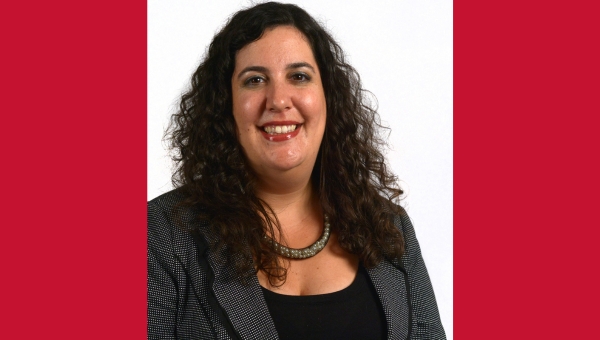Now Presenting: Alumni Bring Performing Arts to Audiences Around the World
By Emma Folts
When you attend a Broadway show outside of New York City, in cities such as Miami or Seattle, you may not realize an entire industry worked to make the experience possible. Performing arts presenting organizations bring musical, theatrical and dance performances to audiences around the world by coordinating shows with artists and performing arts companies.
At the same time, arts management organizations represent the artists and performing arts companies solicited for programming. Together, these two types of organizations make the performing arts accessible to people who otherwise may never view a Broadway show or attend an opera. They contribute to the vibrancy of their communities and enrich viewers.
The Master of Arts Management (MAM) program at Heinz College prepares students for leadership roles in performing arts presenting. These leaders are needed, especially as the industry continues to rebuild from the coronavirus pandemic. Here are the stories of three alumni working in the field.
‘Leading and following audiences’
Alongside his teaching position at Heinz College, adjunct professor Randal Miller (MAM ‘10) serves as the director of programming for the Pittsburgh Cultural Trust. The nonprofit runs the 14-square-block Cultural District in Downtown Pittsburgh and is one of the largest arts presenters in the U.S. It operates several venues, including the Benedum Center for the Performing Arts, which hosts touring Broadway shows.
Miller has worked for the Cultural Trust since graduating from the MAM program, and today, he’s responsible for booking shows. His work involves striking a balance between offering shows that audiences want to see and pushing viewers to attend shows that may be out of their comfort zones. All the while, he has to weigh the amount of tickets that shows will sell and make sound financial decisions.
“A good tenet of the Cultural Trust has always been this concept of leading and following audiences,” he said. “The commercial programming we do allows us to sustain opera shows, contemporary dance performances and other artforms that can’t support themselves on ticket sales alone.”

Impact of the MAM Program
The program gave Randal Miller a variety of valuable skills, providing a foundation in management science, database management, program evaluation and negotiation.
So far in his tenure, the Cultural Trust has worked with the San Francisco-based ODC/Dance for a performance –– with audience participation –– that details an ancient Catholic pilgrimage across Northern Spain. Miller also developed “Multiple Choice,” an event series that allowed patrons to choose what to attend. The series was meant to bring younger audiences to the Cultural District, Miller said.
“We've gotten to do a lot of magical things,” Miller said. “Bringing art into the city, and into people's backyards, at a price that's affordable for them is the most rewarding part of my job.”
The MAM program’s networking opportunities helped Miller get his foot in the door at the Cultural Trust. Between his first and second year in the program, he interned in New York City for The Joyce Theater, a premier presenter of dance. That internship led him to become the Cultural Trust’s first programming intern, and he launched his career with the nonprofit shortly thereafter.
On top of that, the program gave Miller a variety of valuable skills, providing a foundation in management science, database management, program evaluation and negotiation. Even today, his ability to manipulate cells in Microsoft Excel remains a sought-after skill, Miller said.
As an adjunct professor, Miller is now able to see the MAM program’s impact on other students.
“I enjoy running into them at conferences and seeing them develop because, in the next few years, after they graduate, they will be among the arts leaders in our country,” he said.
Supporting artist and performing arts companies
Brian Orr (MAM ‘08) is the director of music projects for Selby / Artists MGMT, a full-service arts management company for dancers, theatrical performers, musicians and more. Orr primarily helps to coordinate national and international tours for dance companies, ironing out transportation, lodging and other logistical details.

Impact of the MAM Program
The program taught Brian Orr how the presenting industry works - from marketing to fundraising - and helped him secure internships that supported his career plans.
He also assists in the development of music projects with orchestras, such as “BLACKSTAR Symphony: The Music of David Bowie,” an orchestrated version of Bowie’s last album. An important part of his job is building positive relationships with artists and cultural institutions, he said.
“If challenges come up, we can help the venue and the artist figure out a solution because we’ve developed good relationships with both of them. We’re able to take a step back and say, ‘I understand that this is an issue or constraint here, and let's figure out how we can make this work,’” Orr said.
The MAM program provided Orr with foundational data skills and managerial knowledge that have helped him thrive in his role, in which staying organized is crucial. The program taught him how the presenting industry works –– from marketing to fundraising –– and helped him secure internship opportunities that supported his career plans.
“One of the biggest things I learned was cash flow, and ensuring that everyone gets paid on time and the organization has what it needs. Those are very real applications that I didn't think about before the MAM program,” he said.
Bringing performing arts to Washington, D.C.
Washington Performing Arts (WPA) brings artists from around the world –– from classical musicians to modern dancers –– to perform in venues across Washington, D.C. Samantha Pollack (MAM ‘04) is the director of programming at the nonprofit.
Pollack oversees the nonprofit’s ticketed performances, collaborating with WPA’s president and chief executive officer to plan programming for future seasons. She manages the budgets of upcoming shows and secures their venues, and she serves as a point of contact for artists and their managers.
WPA develops original ideas for programming and seeks commissions to present artists’ projects. Each year, Pollack attends several booking conferences –– where artists showcase their work to presenters –– to gather ideas. No matter the artist or project, the programming WPA selects each season is intended to align with the nonprofit’s mission of “championing the arts as a unifying force.”
For example, in its 2022-2023 season, WPA co-commissioned a ballet from the Dance Theatre of Harlem that honored the life and legacy of Hazel Scott, a jazz and classical pianist, actress and civil rights activist who was persecuted during the era of McCarthyism.

Impact of the MAM Program
“The MAM program is training you to become an executive director, to start your own organization, to be able to lead," Samantha Pollack said.
Pollack has worked at WPA since 2004, after she graduated from Heinz College. A few years into her career at the nonprofit, Pollack became its director of classical programming. She drew on her graduate courses to adjust to the learning curve, she said, applying the knowledge she gained at Heinz College to negotiate with artists, build budgets and run the department.
“The MAM program is training you to become an executive director, to start your own organization, to be able to lead. That's something that I think is not as focused on in other programs,” Pollack said.
When the COVID-19 pandemic struck, Pollack helped guide the nonprofit through the crisis and shape its future post-pandemic, including by participating in the creation of a five-year strategic plan. The pandemic provided presenters with the opportunity to improve their organizations, Pollack said, which could mean stopping some programs and launching others.
“The MAM program set me up for success when I was put into an incredibly tough situation during the pandemic,” Pollack said. “I really do attribute a lot of that success to the foundation I received from the program.”
This spring, Pollack received Heinz College’s Meritorious Service Award for her contributions to the college and its mission.